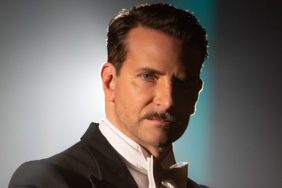One of our greatest art house filmmakers is also one of our greatest blockbuster filmmakers. Then again, he also directed Showgirls. This week, Dutch filmmaker Paul Verhoeven reveals his newest acclaimed dramatic thriller Elle into the world, and it’s a heavy dose of the unexpected, starring Isabelle Huppert as a woman who is raped, but who refuses to play the victim. It’s more surprising and yes, even funny, than most audiences would expect.
And it begs the question: if Paul Verhoeven remains one of our greatest directors, then what is his best movie ever? Is it one of his early art house shockers? One of his subversive Hollywood sci-fi action epics? One of his later, thoughtful rumination on femininity? We asked our panel of film critics – Crave’s William Bibbiani, Blumhouse’s Witney Seibold and Collider’s Brian Formo – and they responded with completely different films that represent each era of Paul Verhoeven’s career.
Find out more about what they picked, and come back next week for another highly debatable installment of Crave’s The Best Movie Ever!
Brian Formo’s Pick: The 4th Man (1983)

Rob Houwer Productions
Paul Verhoeven’s final Dutch film—before cozily moving on to Hollywood big-budget subversiveness with RoboCop, Starship Troopers and Total Recall—was The 4th Man. And though we identify him with subversiveness, nothing in his filmography is as subversive as The 4th Man because it’s psychological as oposed to confrontational. It shows sex as both tantalizing and devouring, but also too fleeting and physiological to actually inform a whole identity. Ideas make up your identity, not what’s between your legs.
An author, Gerard (Jeroen Krabbé), begins an affair with an alluringly stark, yet androgynous woman, Christina (Renée Soutendijk) who sells cosmetics, favor shears, and runs a night club called SPHINX. The SPHINX’s neon sign is burned out and only spells SPIN (Dutch for “Spider” and after meeting her at the bar, he’s placed into a web of confusion). Gerard, who is in a difficult long-term homosexual relationship, is at first attracted to Christina in an attempt to get closer to the younger man in her life (Thom Hoffman). But after experiencing a very different type of orgasm with her, he starts having strange nightmares and a crisis of identity.
The 4th Man is a combination of many of the great things that existed in Verhoeven’s foreign work—dark eroticism, lounging nudity, shocking sexual violence—but it’s his most demented religious film as well. “Being Catholic means having an imagination,” Gerard answers during a Q+A, when asked how someone can still be religious during an age of expanding science. After having his mind blown by sex, Gerard is unable to differentiate between what horrors are real and which made-up horrors he’s stored away for future writing. Biology led his penis, but he allowed Catholicism (and its rituals and symbolism) to lead his imagination to punishment.
William Bibbiani’s Pick: Total Recall (1990)

TriStar Pictures
Paul Verhoeven has made erotic thrillers, sci-fi blockbusters, one of the so-called “worst movies ever made,” and just about the only thing any of those have in common is that they are subversive as hell, and categorically unwilling to compromise for the sake of entertainment value. And even then, they manage to be entertaining as hell.
I think the ur example of Paul Verhoeven’s output, the film that unlocks all of the rest, is Total Recall, an adaptation of Philip K. Dick’s short story We Can Remember It For You Wholesale, about a working class joe who buys memories of a more exciting life. Surprise! Those fake memories were the real ones all along, and he winds up on a trip to Mars where he battles organized criminals, befriends mutants and unlocks the secrets of an alien civilization. And if that sounds pretty implausible to you, you’re right, because there’s a 50% chance that the rest of the movie is the psychotic delusion of a man who dared to dream and paid an unreasonable price.
Total Recall is impossibly thrilling, a wild and imaginative sci-fi masterpiece that realizes unusual worlds and exhilarating situations. But reality keeps poking in under the surface, whether you think it’s all a dream or not. It’s an insidious takedown of Hollywood’s fantasy sales pitch, finding humor and tragedy in our collective desire to escape into fantasy at the cost of our own real lives. Even at his most straightforward, Paul Verhoeven challenges his audiences to confront their reality through fiction and vice-versa, and rarely has that sort of heady filmmaking been more satisfying and fun.
Witney Seibold’s Pick: Elle (2016)

Sony Pictures Classics
Undoubtedly and auteur, boldly striking, uncompromising, and wholly devoted to his ideas – however bad – Paul Verhoeven is one of those filmmakers that one must admire, even through some of his lower points. He has always been ballsy and unafraid to take his movies over the top, usually in the service of fun Hollywood-twinged satire, but often just to confront his audiences with something that could not (or possibly could not) be mistaken for the real thing.
Of all the Verhoeven films seen by this critic, his most confrontational to date is also his latest. Elle, starring the incomparable Isabelle Huppert, is about a woman who is violently raped by a masked assailant in her own home – right in the film’s very first scene – only to become immediately blasé about the experience. As the film moves forward, we learn about dark secrets in her past, and perhaps – perhaps – discover why she is able to seemingly brush off such a brutal assault. In feature films, rape has always been a touchy topic, often treated crassly and melodramatically (see Showgirls for an example). Here, the reactions seem measured and adult. Not everyone, Verhoeven seems to say, is going to experince this horiffic crime in exactly the same way.
As Elle continues, we see how unconventional it truly is, taking the audience down roads that lead to the dissipation of social unity – and how freeing that can be. But it is not a nihilistic film along the lines of Lars Von Trier. This is a very hopeful film about something that looks like healing in the face of an indifferent wickedness.








